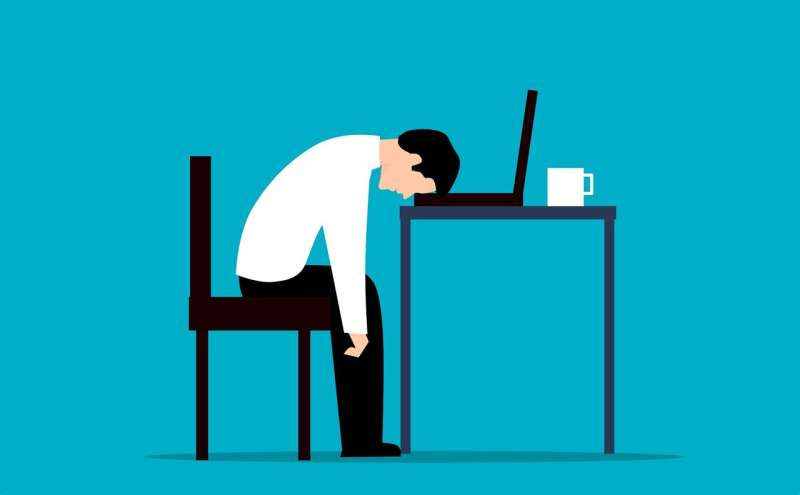This article has been reviewed according to Science X's editorial process and policies. Editors have highlighted the following attributes while ensuring the content's credibility:
fact-checked
peer-reviewed publication
trusted source
proofread
Sit all day? Periodic squatting exercises may help preserve your brain power

We know sedentary behavior is bad for our health, especially for those of us who sit at a desk all day or in front of the TV each night. It has even been linked to mild cognitive impairment. Previous research has suggested that executive function—the processes in the brain that enable people to plan, focus, remember and multitask—may suffer when we sit for long periods without moving our bodies.
But a new study finds that doing just one minute of squatting exercises periodically during long periods of sitting may help preserve the brain's cognitive and executive function. The study, titled "Effects of intermittent exercise during prolonged sitting on executive function, cerebrovascular and psychological response: a randomized cross-over trial," is published ahead of print in the Journal of Applied Physiology.
A group of young adult volunteers participated in two conditions of the trial. In one scenario, they sat without interruption for three hours ("control"), and in the second, they sat for three hours and performed one minute of half-squat exercises every 20 minutes ("exercise"). In both study conditions, the research team measured the participants' blood pressure, blood flow through the internal carotid artery—which represents 75% of the total blood flow to the brain—and heart rate after 10 minutes, one hour, two hours and three hours. At the end of each trial, the volunteers completed three tests.
- The color-word Stroop test measures cognitive and executive function by asking respondents to quickly identify if the words "red," "blue," "yellow," "green" and "black" are printed in the color ink that corresponds to the written word.
- The trail-making test measures cognitive and executive function by asking participants to trace lines that correspond with correct alphanumeric combinations, such as A-1, B-2, C-3 and so on.
- The visual analog scale is a subjective measure of mental fatigue, concentration and motivation.
The researchers found that during the exercise arm of the trial, the participants responded more quickly to both the incongruent (words that don't match the color ink they are printed in) and congruent (the word and its color ink match) conditions of the color-word Stroop test than during the control trial. The volunteers completed the trail-making test more quickly during the exercise condition as well. In addition, the participants self-reported more significant decreases in concentration and larger increases in mental fatigue during the control trial than when they exercised.
Blood flow in the internal carotid artery decreased by 3.7% when the volunteers were sedentary, compared to a slight (0.3%) increase when they broke up their sitting with the intermittent half-squat routine.
The research team recognizes that while the participants "were asked not to move their legs or fidget during the sitting bout except during half-squats … people are not restricted in this way in their daily lives," which may alter the results in a "real world" situation. However, "[O]ur half-squat intervention may be able to be used by individuals seeking to break up their sedentary behavior in an effort to preserve cognition during times, such as in the workplace," the researchers wrote.
More information: Masahiro Horiuchi et al, Effects of intermittent exercise during prolonged sitting on executive function, cerebrovascular and psychological response: A randomized cross-over trial, Journal of Applied Physiology (2023). DOI: 10.1152/japplphysiol.00437.2023




















